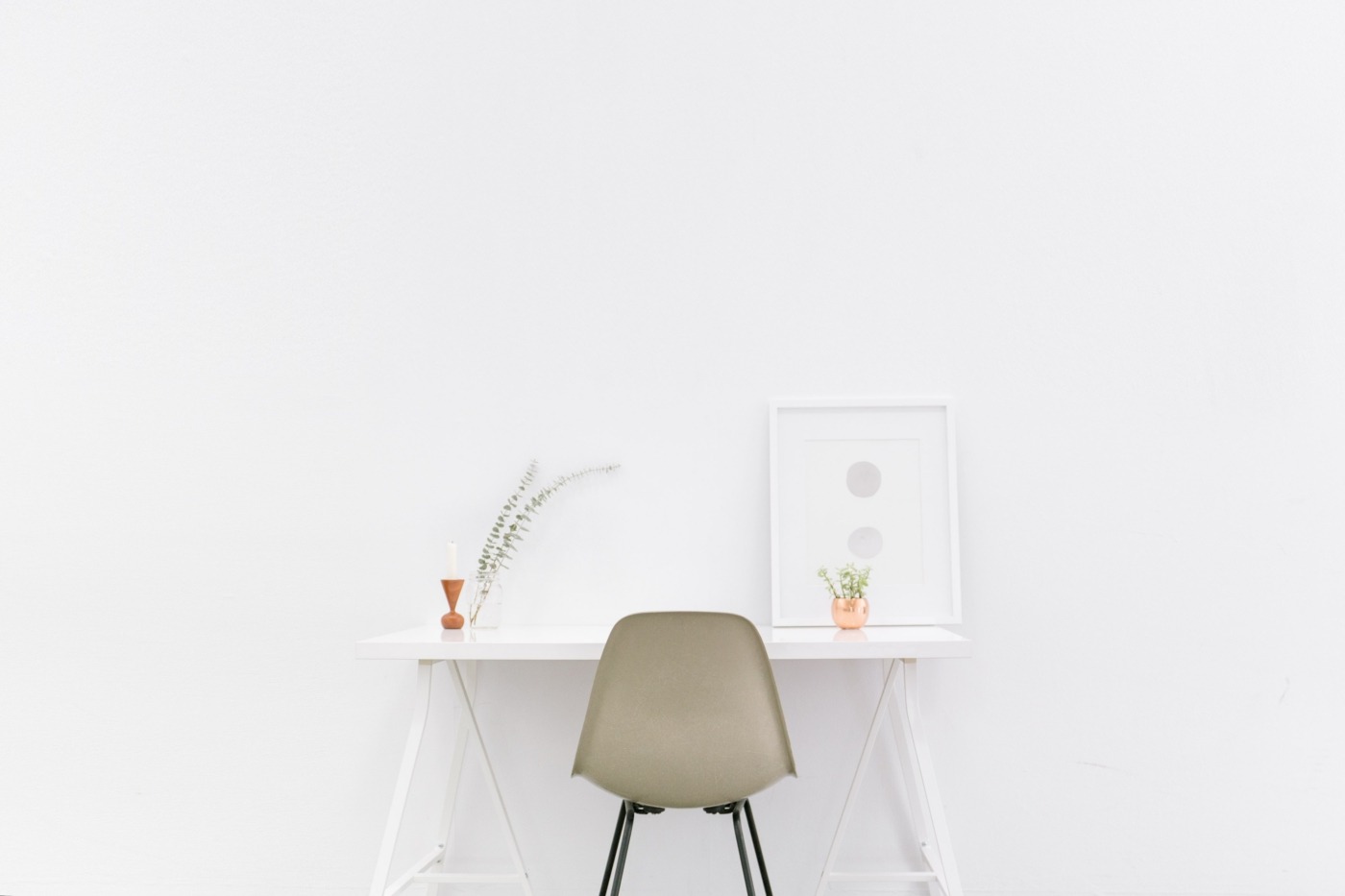Minimalism: ethics or design?
Minimalism began as an art style in 1960s western media, where it was showcased in visual and musical art forms in simple and refined designs. In terms of a current aesthetic design, it can often be recognised by bright white or neutral palettes, and any patterns used tend to be repetitive. Staple textures are a wood or marble finish to decorate tabletops or walls. The lines are clean, and the overall composition is typically made to seem balanced and sleek.
Since its art-based beginnings, it has become a cultural phenomenon that is based around the idea of living minimally and in moderation, with many followers of this ideology owning only the possessions they deem necessary.
More people are striving to be eco-friendly and ethical consumers
The Netflix show Tidying Up with Marie Kondo could be considered one of the recent pushes of this approach into pop culture in terms of intentional possessions. It was also during the first lockdown in the UK that this show gained major popularity, likely because the majority of us were spending all day in our homes. In the show, the host Marie Kondo encourages families to systematically sort through their belongings and get rid of anything that did not treasure.
Kondo emphasises functionality and emotional value in the items you choose to keep and asks what items would ‘spark joy’ in order to have a purposeful home, which is especially important in this time with the conflation of our living space and workspace.
A growing awareness of our consumer power has also lead to an increased interest in minimal living and minimal spending. It seems that a common trend amongst self-described minimalists is the aversion to materialism and to consumer culture. More people are striving to be eco-friendly and ethical consumers in a system that has been upheld for so long by the exploitation of marginalised people and underpaying of workers.
Many of the resources and brands are controlled by a small number of companies
The most blatant example here is the exorbitant wealth of businessman Jeff Bezos, who owns Amazon. In recent years, reports have been coming out detailing the beyond dismal working conditions and wages of Amazon workers. These incredibly despicable workplace practices have led many to boycott the website and opt for more ethical alternatives which tend to be a little more expensive but are supporting smaller businesses. Doing so, however, can be difficult in societies where many of the resources and brands are controlled by a small number of companies.
In looking at the case of Samsung in South Korea, 15% of the entire country’s economy is monopolised by the company, with citizens living in Samsung-owned apartment buildings, going to Samsung universities, and even receiving their healthcare from Samsung-funded hospitals! Although this might seem strange, it is a stone’s throw from what massive conglomerates are doing here in the UK.
Over 70% of all ads are coming through only three major platforms (Amazon, Facebook, and Google), and these big three companies seeking to venture into websites and apps related to healthcare and transportation services and thus become more entangled in our daily lives.
Consumers can also avoid its detrimental effects of fast fashion
Convenience is also a major motivator for the minimal lifestyle, and some have even been able to condense their entire wardrobes down into less than 20 items. This approach of basic living avoids the excess of choice that many of us experience in our daily lives – with the decision on what to watch (Netflix, Amazon Prime, Hulu), what to eat (with a vast array of delivery options), and what to wear.
Smaller wardrobes also mean we can avoid fast fashion and a simple fix such as staple pieces that are higher quality can be the way to go. This means consumers can also avoid its detrimental effects of fast fashion to the often underpaid and overworked labourers, to the wildlife populations, and to the environment. If I haven’t said it enough, minimalism, if attached to spending habits and financial choices, is a decidedly more ethical way to live.
Minimalism has gained more popularity recently and, on a purely aesthetic level, it is pleasing to the eye and could be conducive to a soothing home environment to settle into considering the more tumultuous year we’ve had this year watching from home.

Comments